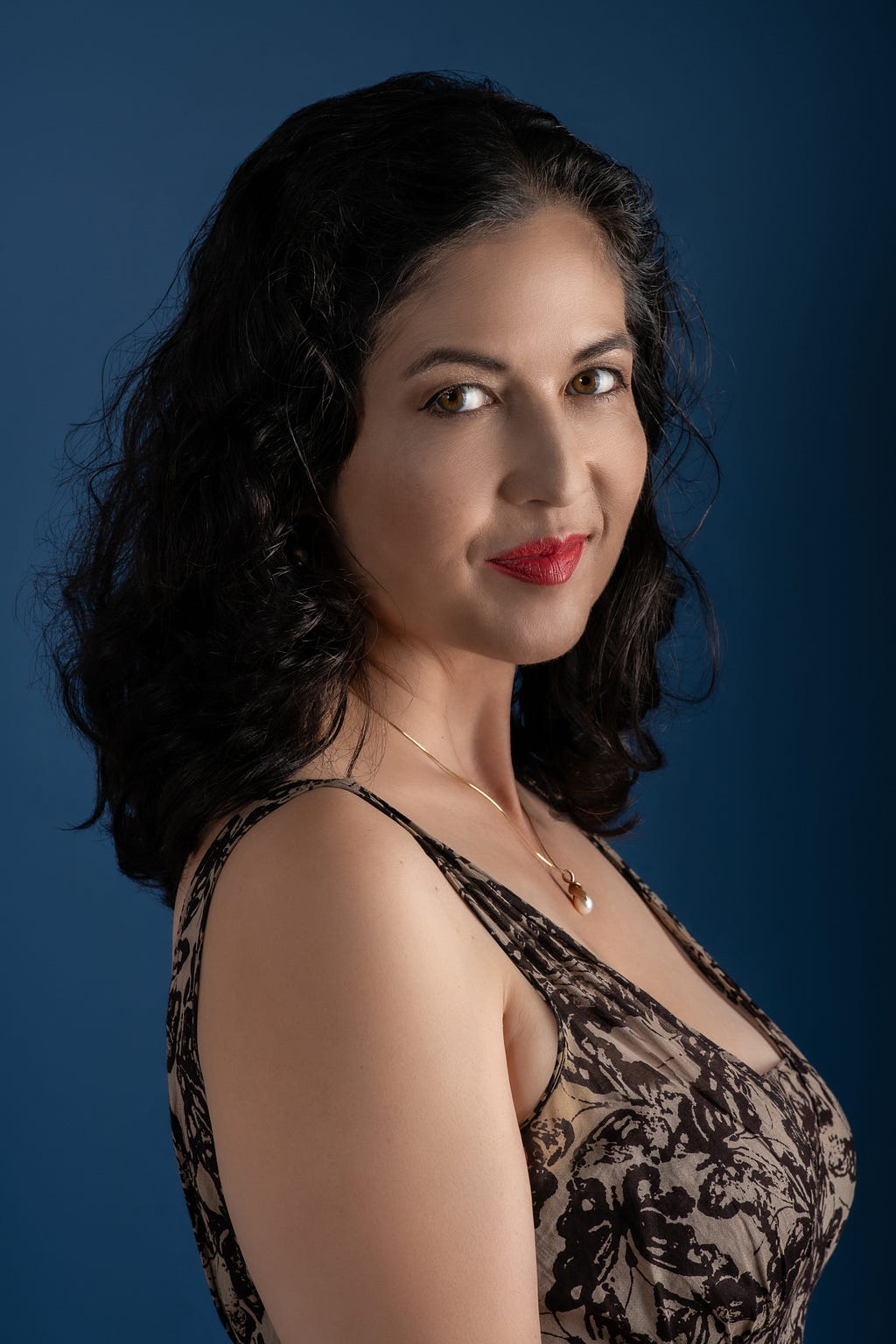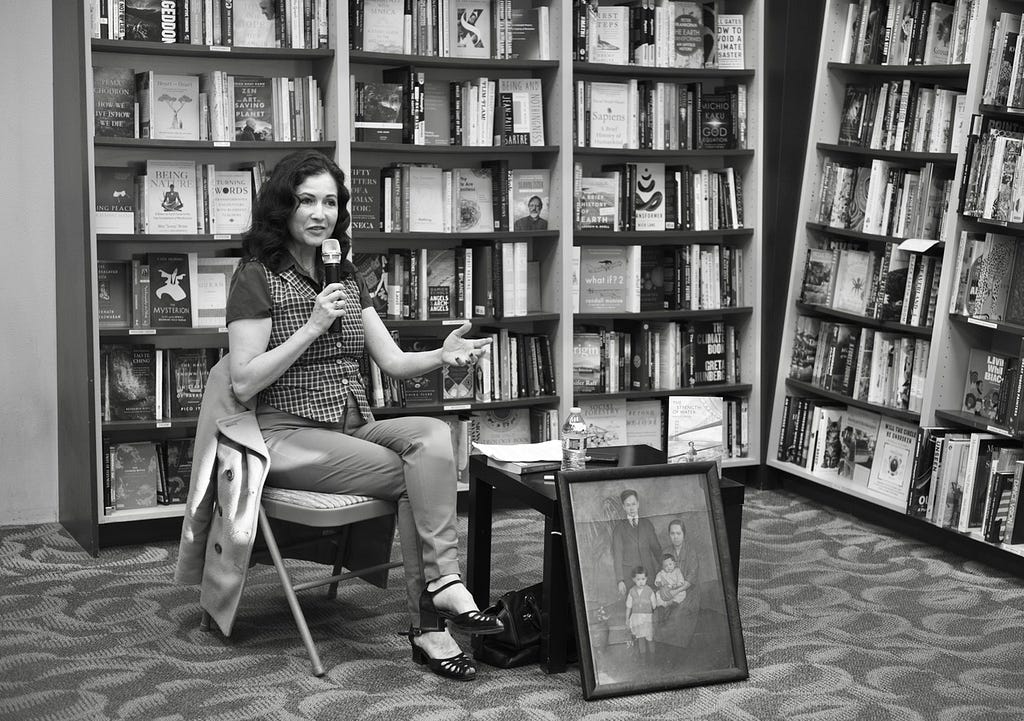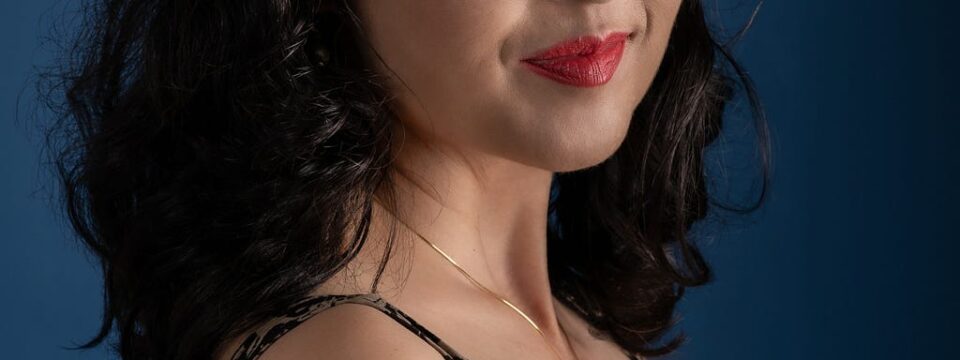
I wish I knew the power of time decluttering. In today’s world, it’s so easy to get scattered. The pandemic pared life down, allowing me to see what I craved and couldn’t wait to return to and what I surprisingly didn’t miss and wouldn’t mind letting go. It was eye-opening.
As part of my series about “authors who are making an important social impact”, I had the pleasure of interviewing Karin K. Jensen
Bay Area native Karin K. Jensen is a freelance news writer and author of The Strength of Water, an Asian American Coming of Age Memoir. It is a timely and haunting narrative non-fiction debut published by Balestier Press and available on Amazon. Karin especially enjoys both creative non-fiction and fantasy, sagas that carry the reader to a different time and place and tell something essential that inspires.
Thank you so much for joining us in this interview series! Before we dive into the main focus of our interview, our readers would love to “get to know you” a bit better. Can you tell us a bit about your childhood backstory?
I have happy memories of childhood. I grew up in the comfort of an upper-middle-class enclave in the San Francisco Bay Area, where my family loved me deeply.
But we didn’t quite fit in. My mother was a waitress, and my father was a schoolteacher. My peers did debutante balls, ski trips, and world traveling. I didn’t.
I lived with my parents in a two-bedroom, 1–1/2 bath house next to a mansion so large it extended from one street to the next, so it was like being Nick Carraway in The Great Gatsby. Still, I was a strong student and had a few good friends. If I longed for more diversity, I couldn’t complain about my education, safe streets, and loving family.
Through childhood, my mother told stories of growing up in her father’s Detroit laundry business during the infancy of the automobile industry and later in a Cantonese village on the eve of the Sino-Japanese war. She also spoke of what it was like to survive as a teen waitress in mid-century California.
There were stories of gamblers, an American dream, dashed hopes, dangerous superstitions, war-time privations, folklore, those who take advantage of the economically vulnerable, racism in housing, and toxic cultural expectations relating to sexuality and marriage.
There were also stories of persistence, resilience, the kindness of guardian angels, and the value of fighting for one’s slice of happiness.
As a youth, these stories felt like mythology, so far removed from my daily experience. However, in later years, the stories became a guiding star for surviving difficulties, feeling compassion, and holding onto dreams.
When I decided to set them down, I could hear my mother’s voice so clearly that I wrote in the first-person perspective.
When you were younger, was there a book that you read that inspired you to take action or changed your life? Can you share a story about that?
One book I re-read about every ten years is Ruthanne Lum McCunn’s Thousand Pieces of Gold, a historical fiction novel about the pioneer woman, Polly Bemis, born Lalu Nathoy.
She was a real woman born in China and sold by her father to bandits during desperate times. Eventually, she was sold to a Chinese saloon owner in the United States, looking to increase business by using her as an attraction.
You read that right; long after the U.S. officially abolished slavery, Chinese were still sometimes held in involuntary servitude — even by their own people.
The rest is the story tells how she survives and finds her way to freedom, love, friendships, and happiness. Polly never loses sight of who she is and her desire for genuine autonomy. Her romance with Charlie Bemis, the rival saloon owner, is warm and realistic as they work through personal and cultural misunderstandings.
The book speaks to me on different levels, reminding me of the challenges my Caucasian father and Chinese-American mother had to resolve in their marriage. It also reminds me of my mother’s struggle to be appreciated for who she was as a complete human being beyond Chinese and American cultural expectations.
Finally, the book inspired me as a work bordering on creative non-fiction. I would say it influenced my writing style and the kinds of writing I like to do.
It has been said that our mistakes can be our greatest teachers. Can you share a story about the funniest mistake you made when you were first starting? Can you tell us what lesson you learned from that?
My writing career started because of the pandemic. When quarantine began, I joined a writing group. I wanted to regain focus, connect socially, and revisit an old dream. In university, literature classes felt like a sacred space. Words flowed through my mind, painting pictures, sparking ideas, and injecting oxygen. By sophomore year, I felt sure I would major in English Literature.
But when I expressed my wish, my mother wouldn’t speak to me for three days. She was the daughter of an immigrant laborer who had worked her whole career as a waitress.
When I was three, she said, “If I have to scrub floors on my hands and knees so you can go to college, I will do it. I don’t want you to live the kind of life I’ve had to live.”
She sacrificed to smooth my path to the middle class, and felt sure I was throwing away my chance on fantasy. I conceded that even successful writers I met didn’t always earn a steady living from their writing. I had no mentor to guide or encourage me. I couldn’t bear to oppose her. Even powerful dreams fall prey to self-doubt without a cheerleader.
And so, because I had a secondary interest in environmentalism, I majored in hazardous materials management. I worked for twenty years in this field and was satisfied with performing useful work for solid wages.
But I was never passionate about work.
After my children were born, I edged closer to creativity by quitting my career to teach dance. Then, the pandemic struck, bringing with it a gift of time. The moment arrived to scrape the rust off an old vision.
I hired an editor to help me revise the manuscript of a book I had gradually written over decades. Forty-two became my lucky number — that’s how many queries I submitted before connecting with Balestier Press, who was a good match for my work. I also started writing for local news outlets.
I wonder how life might have been different had I the courage to pursue writing in my youth. Yet, I don’t regret my path. My mother was a waitress, so I could be a professional, so my daughters can be anything they want.
Now, I embark on my quest, commit to being the hero of my story, and say yes to dreams. I think my mother would be proud.
Can you describe how you aim to make a significant social impact with your book?
The COVID-19 pandemic, first reported in China, led to dramatically increased crimes against Asian Americans. The Center for the Study of Hate and Extremism reported that hate crimes against Asians increased by 150% in 2020 and then by 339% in 2021 compared to 2020.
One video that particularly affected me was of an attack on a 65-year-old Filipino Woman near Times Square, where security guards standing within feet of her failed to intervene while a man kicked and stomped on her, yelling, “You don’t belong here.”
Subsequently, Andrew Yang advised New York Asian Americans to walk in pairs. Let that sink in.
I hope my book helps readers connect to the humanity of Asian Americans through the lens of one family’s story. I hope it inspires curiosity about the long-ignored history of Chinese-American immigrants, the meaning of the American dream, and what it means for assimilating immigrants, who still follow old-world traditions, to be American.
Can you share with us the most interesting story that you shared in your book?
One of the most remarkable aspects of my mother’s story is how she grew up in Detroit until she was twelve, but when her father incurred steep debts during the Depression, he sent her and her siblings to live in his ancestral village in China. There, he kept them cheaply while he stayed in the U.S. to pay down bills.
Imagine, if you will, living poorly in a small apartment behind your family’s laundry business in the Midwest. Next, step back 100 years in development to a remote village without electricity, plumbing, or telephone. Throw in malaria, superstition, and the start of the Sino-Japanese War.
This was the situation my mother had to survive before she could even begin to pursue her American dream.
What was the “aha moment” or series of events that made you decide to bring your message to the greater world? Can you share a story about that?
I’ve wanted to publish this book since college, but the pandemic kicked me into gear. This was partly because of time on my hands but mainly because of a heightened sense of mortality.
The thought that I might contract this dread disease and be gone suddenly and unexpectedly put everything into focus. I felt I could not die without getting this book into the world.
Without sharing specific names, can you tell us a story about a particular individual who was impacted or helped by your cause?
I can share a story about an organization. Not long ago, I was honored to be one of five writers featured by NewsBreak for an article I wrote on #StopAsianHate. My reward was getting $1,000 donated to the Asian Pacific Fund in my honor.
That meant a lot to me. My aunts benefitted from the Ming Quong Home, a transitional housing facility for immigrant children. Although the Home no longer exists, its sister charity, the Donaldina Cameron House, is still doing good work in San Francisco and is an affiliate of the Fund.
Are there three things the community/society/politicians can do to help you address the root of the problem you are trying to solve?
- Try to be a light right where you are. Encourage those around you. Get to know neighbors, friends, and colleagues of different races as complete humans, ask about their experiences, and listen.
- Asian American history is part of American history. Include our stories in the history books — stories like how the most decorated combat unit in U.S. military history was the 442nd Combat Team, a World War 2 unit made up entirely of Japanese Americans. Or how about the Chinese migrants who built the transcontinental railroad from 1863 to 1869? Asians are the fastest-growing demographic in the nation, but public schools often gloss over Asian American history.
- Don’t let anyone sow division between the races. Supporting one group doesn’t have to diminish another. Investing in education, healthcare, and housing improves dignity for all.
How do you define “Leadership”? Can you explain what you mean or give an example?
I love the quote from the Tao Te Ching (a fundamental text of Taoism), “True leaders are hardly known to their followers.” The idea of the invisible leader is one who gets things done in such a way that people think they did it themselves. It isn’t about manipulation. It’s about wielding power that isn’t force.
Examples might be an excellent teacher who inspires students to greatness, the truest voice in a group of singers, or managers who provide the vision, encouragement, support, and coaching without micro-managing so that workers can do their best.
As Nelson Mandela once said, “Lead from the back and let others believe they are in front.” Walt Disney said, “Whatever we accomplish belongs to our entire group, a tribute to our combined efforts.”
The Tao Te Ching also inspired the title of my book. The book’s author, Lao Tzu, wrote, “Water is fluid, soft, yielding. But water will wear away rock…what is soft is strong.” I think of my mother that way. She had the strength of persistence.

What are your “5 things I wish someone told me when I first started” and why?
- I wish someone told me the power of seeing yourself as the hero of your own story. It turns the rejections and nail-biting into “The Valley of Discomfort in an Epic Saga” instead of something soul-crushing. The right frame of mind is essential.
- I wish someone told me about the power of three. I used to make long to-do lists and feel discouraged when I didn’t check everything off. Now, I write three “seize the day” tasks. It keeps me focused and motivated.
- I wish I had known about virtual writing groups. I belong to “To Live and Write Wherever You Are.” We meet online to work on projects. Sometimes there’s no discussion. It’s about holding each other accountable to spend time on our projects.
- I wish I knew that dancing compliments writing. Writing is about the solitary, creative life of the mind. Dancing is a social, creative life of the body. They are a great yin and yang!
- I wish I knew the power of time decluttering. In today’s world, it’s so easy to get scattered. The pandemic pared life down, allowing me to see what I craved and couldn’t wait to return to and what I surprisingly didn’t miss and wouldn’t mind letting go. It was eye-opening.
Can you please give us your favorite “Life Lesson Quote”? Can you share how that was relevant to you in your life?
I think of Gandalf in J.R.R. Tolkein’s The Fellowship of the Ring when he says, “All we have to decide is what to do with the time that is given to us.”
As I mentioned, the pandemic removed so much clutter from my life — the clutter of commuting and shuttling kids to jobs and activities. It also removed social activities, travel, and most of my employment. Out of stillness emerged clarity. I felt I finally understood the true meaning of Lent, the Christian religious observance commemorating the 40 days Jesus spent fasting in the desert.
When the economy reopened, the old busyness returned, but I had a better idea of how to be strategic regarding what to keep and let go to accommodate my writing.
Is there a person in the world, or in the US with whom you would like to have a private breakfast or lunch with, and why? He or she might just see this, especially if we tag them. 🙂
I would be honored to meet author Lisa See. I love her book, “On Gold Mountain: The One-Hundred-Year Odyssey of My Chinese-American Family.” It’s a remarkable love story from when interracial marriage was forbidden.
I was born to my Chinese mother and Caucasian father in 1964, three years before the United States legalized interracial marriage nationwide. My mother recalled people staring when she and Dad took me out in the carriage. The Civil Rights Act had just passed, outlawing racial segregation in schools and public places. Mom said that people on the street would look at her and Dad and then discreetly or not so discreetly try to look into the carriage to see me.
When I discovered Lisa See’s book, the cover of which features a photo of her interracial Great-Grandparents in the 1910s, I knew I had to read it. I’ve attended one of her online book talks, and she’s lovely.
How can our readers further follow your work online?
My website with blog, order links, and social links is: linktr.ee/karinkjensen.
This was very meaningful, thank you so much. We wish you only continued success on your great work!
Thank you for this opportunity. It was my pleasure.
Social Impact Authors: How & Why Author Karin K Jensen Is Helping To Change Our World was originally published in Authority Magazine on Medium, where people are continuing the conversation by highlighting and responding to this story.
